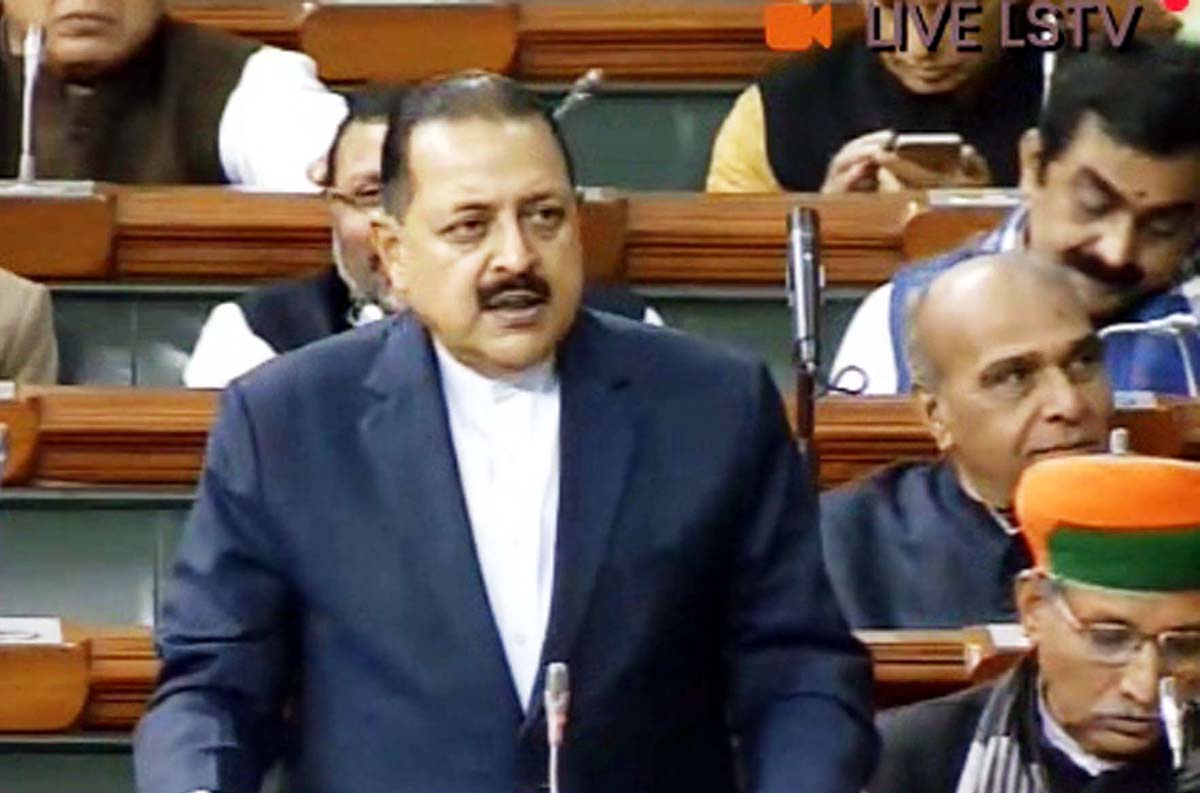Excelsior Correspondent
NEW DELHI, Dec 4 : Union Minister of State (Independent Charge) Development of North Eastern Region (DoNER), MoS PMO, Personnel, Public Grievances, Pensions, Atomic Energy and Space, Dr Jitendra Singh stated here today that the Modi government is committed to introduce citizen-friendly reforms and bring about systemic improvement to provide transparent services and reduce corruption.
In response to a question in the Lok Sabha, Dr Jitendra Singh replied that the Government has taken several measures in the last over five years to combat corruption and to bring in more of citizen-centricity in governance. These include disbursement of welfare benefits/money directly to the citizens under various schemes of the Government of India in a transparent manner through DBT (Direct Benefit Transfer) initiative.
Implementation of e-tendering in the public procurement, introduction of e-governance with simplification of procedure and introduction of Government e-Marketplace(GeM) are some of the path – breaking initiatives taken under Prime Minister Narendra Modi in the Department of Personnel & Training (DoPT) stated, Dr Jitendra Singh. Discontinuation of interviews in recruitment of Group-B (Non Gazetted) and Group-C posts is a landmark decision taken by the Modi government, he added.
In order to promote high standards of performance and reduce corruption, Dr Jitendra Singh stated that invocation of FR-66(j) and the All India Services (DCRB) Rules 1958 for prematurely retiring officials have been appropriately used from time to time. In addition, the All India Services (Disciplinary and Appeal) Rules, and Central Civil Services(CCS) Rules, have been amended to provide specific time-line to accomplish disciplinary proceedings.
In his reply, Dr Jitendra Singh referred to the Amendment brought by DoPT last year in the Prevention of Corruption Act 1988, and described it as a paradigm shift in tackling corruption by as much as criminalizing the bribe-giving as well. Central Vigilance Commission (CVC) has also adopted a multi-pronged strategy against corruption by incorporating punitive, preventive and participative vigilance. The institution of Lokpal was also operationalized by this Government with the appointment of Chairperson and eight members including four Judicial members, he added.


